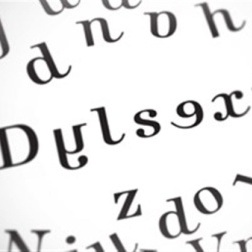
Lifestyle/Community

Dyslexia has absolutely nothing to do with ‘intelligence’
SUZANNE BELLING
Apart from being Jewish, these three notable personalities shared the pattern of learning difficulties associated with dyslexia.
Due to a lack of knowledge about dyslexia among lay people, many very wrongly equate it with “sub-intelligence”, say the experts. Nothing, however, could be further from the truth.
Educational psychologist Ashley Berman points to three variations of dyslexia, some affecting visual memory, others affecting auditory faculties and then a mixed type.
Some children have difficulty reading and spelling words that are not written phonetically. They also are prone to getting confused between b/d, p/q and to omit letters. This is known as dyseidetic dyslexia. Berman explained that this may also implicate visual memory more generally. “In dyseidetic dyslexia, children can often manage phonetic reading,” Berman said.
In the case of dysphonetic dyslexia, they battle to retain the basic phonetic/orthographic (sound-letter) system which makes up English. Sometimes a difficulty with writing (called dysgraphia) is also apparent. Children may then find it hard to organise and express their thoughts and ideas in written form.
“We need an insightful, multisensory approach,” she says, advocating that parents should encourage a love of books and reading in their children. Very often, because reading is so challenging, the child’s vocabulary and expressive language is not sufficiently developed. Reading and writing for all high school subjects is very much about comprehending the depth of a word (for example a word like ‘economics’) as well as being able to express thoughts with precision and depth.
“Children should read books with at least 90 per cent accuracy decoding per page. Therefore, parents should read higher level books regularly in order to develop a rich resource of language. This will, hopefully, engender a love for literature or books and also help them when they are reading because they may be able to work out words if they know what they mean.” Discussion on a higher level should accompany the reading.
“Dyslexics are usually very highly intelligent and there are many internal resources which can be accessed to support reading and understanding.”
Origins
Dr Oswald Berlin, a German ophthalmologist, introduced the term dyslexia in the 1880s – from the Greek word “dys” (meaning ill or difficult) and “lexis” (meaning word). He used it to describe a specific reading disturbance in the absence of pathological conditions in the visual organs.
In a later publication Berlin stated that dyslexia, “presuming right-handedness”, ‘was caused by a left-sided cerebral lesion. He referred to “word blindness” and recorded his observations on six patients with brain lesions who had full command over verbal communications, but had lost the ability to read.
The EdubloxSA website states that over the next century Berlin’s narrow definition broadened: “Today the term dyslexia is frequently used to refer to a ‘normal’ child – or adult – who seems much brighter than what his reading and written work suggest.”
Occupational therapists also work with dyslexic children. Says occupational therapist Merissa Moritz, “Part of our role is to assist in finding creative ways that give meaning to letters and numbers to each child, who should be viewed as an individual and find out what makes him or her tick. And to explore the type of learner the child is.
“Treating any child with any challenge – not just dyslexia – does not come in isolation. It involves the co-operation of all the therapists working with a particular child, the school and, of course, the parents, with the child being the centre of the team. One cannot work in isolation.
“Every child has a strength and it is important to find and channel this. Modern technology and teaching methods have developed to such an extent – including computer programs – and allow children with dyslexia to enjoy independent working, whether it be school exams, assignments or creative writing. This assists them in fulfilling their true potential.”
Moritz points out the “incredible work and awareness programmes” of schools like Bellavista in Johannesburg.
“They have awareness evenings. A lot of research has been done on dyslexia and the majority of dyslexics are intelligent and creative and grow up to be successful adults. Dyslexia is not a limitation, it’s a challenge,” she says.




